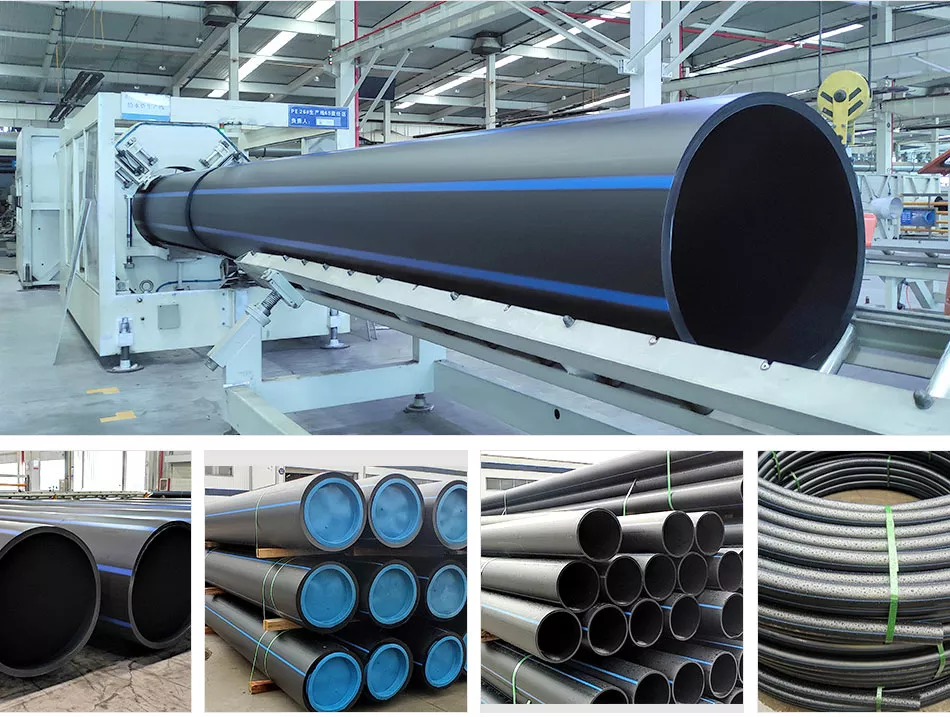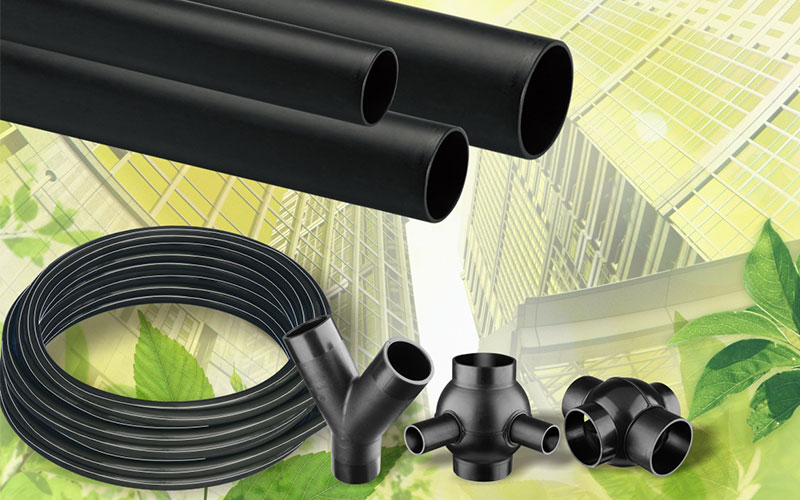Exploring American Plastics HDPE Pipe Manufacturing and Its Impact in Modern Infrastructure
Wiki Article
A Comprehensive Overview to the Different Usages of HDPE Pipe in Building And Construction and Industry
HDPE pipelines have become a pivotal part in contemporary building and industrial applications. Their one-of-a-kind properties, such as resistance to corrosion and lightweight style, make them suitable for a broad array of usages. From supply of water systems to farming irrigation, HDPE pipelines supply remedies that improve effectiveness and sustainability. Understanding their varied applications is vital for specialists wanting to maximize infrastructure. What details advantages do these pipes offer each industry?Water System and Circulation Equipments
Water system and distribution systems are vital elements of metropolitan framework, usually depending on high-density polyethylene (HDPE) pipes for their resilience and performance. These systems transportation safe and clean water from therapy facilities to customers, making sure access and security. HDPE pipelines are favored for their resistance to corrosion, chemicals, and severe temperature levels, which enhances their longevity and reduces maintenance expenses. Furthermore, their lightweight nature enables for easier installment and transportation, making them optimal for different urban and rural applications.The flexibility of HDPE pipelines allows them to be mounted in tight areas and around barriers, minimizing the requirement for considerable excavation (Texas hdpe pipe manufacturer). Additionally, their smooth interior surface area lowers friction losses, boosting water circulation rates. As cities continue to grow, the demand for trusted water system systems boosts, positioning HDPE pipes as a sustainable remedy for modern infrastructure jobs. Their tried and tested track document makes them a recommended option among designers and metropolitan organizers alike
Wastewater Monitoring and Treatment
Reliable wastewater monitoring and treatment are important for keeping public health and wellness and environmental high quality. HDPE pipelines play an essential role in this process because of their resilience, resistance to corrosion, and capacity to hold up against extreme chemicals. These pipelines are frequently used in different applications, consisting of sewer system, stormwater drain, and wastewater therapy facilities. Their light-weight nature facilitates easier setup and transport, lowering labor expenses and time.In addition, HDPE pipelines have a smooth interior surface area that lessens friction loss, advertising effective circulation rates. They are additionally much less prone to leakages and failures compared to standard products, making sure that pollutants are had properly. Moreover, their adaptability allows for adaptability in different soil problems, making them appropriate for varied ecological settings. As sectors significantly prioritize sustainable methods, using HDPE pipes in wastewater monitoring systems aligns with goals for minimizing ecological influence and improving resource recuperation.
Agricultural Irrigation Solutions
In agricultural setups, reliable irrigation remedies are essential for enhancing crop returns and taking care of water resources. HDPE (High-Density Polyethylene) pipelines play an important duty in contemporary watering systems as a result of their durability, versatility, and resistance to corrosion. Their capacity to hold up against high stress makes them suitable for both surface area and subsurface watering applications, making sure uniform water circulation across fields.Farmers can use HDPE pipes in drip irrigation systems, which supply water directly to plant roots, decreasing wastage and advertising healthy development. Furthermore, these pipes are light-weight and very easy to set up, minimizing labor costs and installment time. Their long life expectancy and reduced upkeep requirements better improve their allure in farming practices.
Moreover, HDPE pipelines are ecologically pleasant, as they can be reused and do not leach dangerous chemicals right into the dirt. This makes them a lasting option for farmers intending to embrace green agricultural approaches while making the most of efficiency.
Industrial Applications and Processes
Versatility is a hallmark of HDPE pipelines, making them indispensable in different commercial applications and procedures. These pipelines are extensively made use of in chemical processing sectors because of their outstanding resistance to a variety of corrosive substances. HDPE's lightweight nature, combined with high tensile toughness, permits very easy installment and lasting performance in requiring atmospheres.In the oil and gas market, HDPE pipelines play a vital duty in delivering hydrocarbons and gases, many thanks to their durability and adaptability - hdpe pipe suppliers Midland TX. Furthermore, they are employed in mining operations for the transport of slurry and other products, where traditional piping systems may fall short
HDPE pipes are significantly made use of in manufacturing centers for water supply lines and wastewater monitoring. Their capability to hold up against extreme temperatures and pressures makes them ideal for a range of commercial processes. In general, HDPE pipelines contribute substantially to performance and safety throughout varied commercial applications.
Stormwater Monitoring and Drainage Solutions
Stormwater administration and water drainage systems are critical parts in city framework, designed to handle excess rains and reduce flooding threats. High-density polyethylene (HDPE) pipes are progressively utilized in these systems due to their durability, adaptability, and resistance to corrosion. These pipelines successfully carry stormwater away from populated areas, reducing surface area overflow and protecting against waterlogging.HDPE's lightweight nature promotes simpler installation, decreasing labor costs and building and construction time. In addition, its resistance to chemicals and ecological stress factors guarantees durability and integrity in various environments. In addition to conventional water drainage applications, HDPE pipes are likewise used in innovative options such as green infrastructure, which consists of rainfall gardens and permeable pavements.

Often Asked Concerns
Exactly How Does HDPE Pipe Compare to PVC Pipe in Cost?
In basic, HDPE pipeline has a tendency to be more expensive than PVC pipe due to its enhanced sturdiness and versatility. Long-lasting cost considerations, such as maintenance and life expectancy, may favor HDPE in particular applications.What Is the Life-span of HDPE Water Lines Under Numerous Problems?
HDPE pipes commonly have a lifespan of 50 to 100 years, depending upon ecological conditions, setup techniques, and use. Variables such as temperature level, soil kind, and exposure to chemicals can considerably affect their resilience.Can HDPE Water Lines Be Recycled After Usage?
Yes, HDPE pipes can be recycled after use. The reusing process includes thawing down the material, enabling it to be repurposed right into new items, therefore promoting sustainability and minimizing ecological influence associated with plastic waste.Are There Any Specific Installment Obstacles With HDPE Pipes?
Installation obstacles with HDPE pipelines consist of proper jointing techniques, making certain appropriate trench conditions, and taking care of thermal expansion. Additionally, knowledgeable labor is called for to handle specific devices, which can complicate the installation process in different atmospheres.
What Qualifications Should I Look for When Purchasing HDPE Pipelines?
When acquiring HDPE pipes, one need to look for qualifications such as ASTM, AASHTO, and ISO, which validate high quality and conformity with sector requirements, guaranteeing durability and website performance in numerous applications. - hdpe pipe in stock Midland TXReport this wiki page